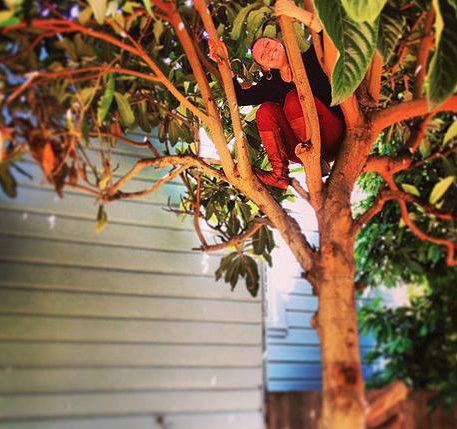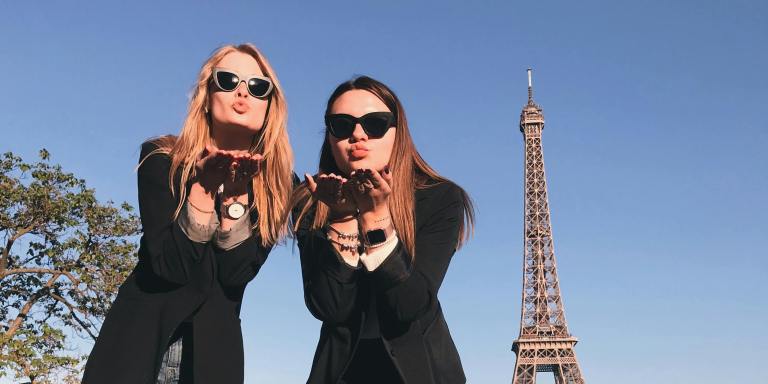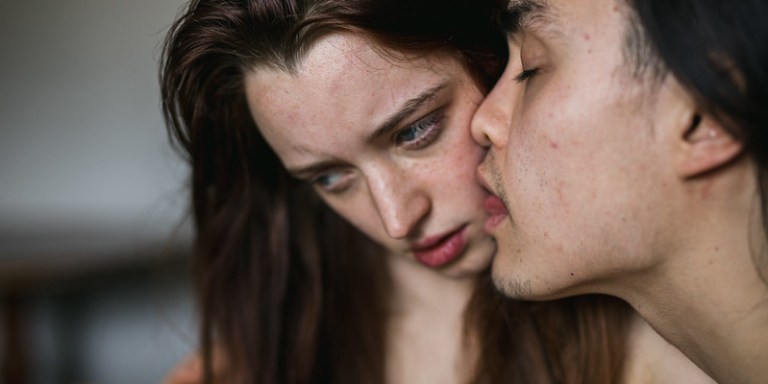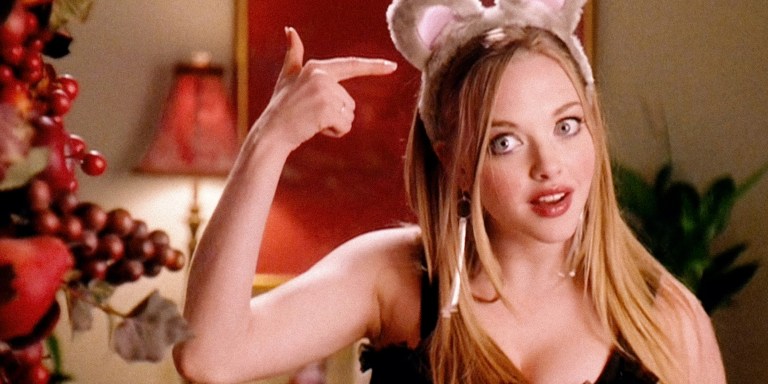I can’t talk about race. I can’t question it, can’t refer to it, and can’t acknowledge it. I can barely go so far as to notice it. I’m a white, middle-class, American woman who can’t speak about what it’s like to be a white, middle-class, American woman. Race isn’t on my list of approved talking points.
I don’t underestimate the weight my words would have against the backdrop of Rodney King, Sally Hemings, Jim Crow, and slave ships. I understand how inappropriate and undeserved a soapbox that would be. But if I could in fact talk about race, I would start the conversation here, in Africa, in Ghana, where I have never been so aware of the color of my skin—welcomed and adored because of it, and yet left feeling small and burdened by the historical implications.
Each morning I wake up, I can be sure that at no point during the day will my skin color go unnoticed. Ghanaian reactions to me vary by age—babies have been known to burst into fearful tears, young children touch my arms and hair and yell, “obruni!” (white person), and adults call out to me from across the street, welcoming me, the “white lady,” to their country. My neighbors never fail to greet me, and the ladies at the market kindly teach me Twi (Ghana’s principal native language) every time I buy my vegetables, and the children hold my hands and comment on my soft skin.
And everyone—everyone—asks me, either in jest or seriously, to bring them back to America when I return. This request is not age or gender restrictive, but it’s the young Ghanaian men that have taken this question, this idea of leaving Africa with a white person, and made it their own. I cannot begin to count the number of marriage proposals my female “obruni” friends and I receive on a daily basis. The possibility of becoming my husband means easier access to a visa, a potential ticket to the USA, and most importantly, a wife with white skin.
I am in no way complaining about this reality for white people visiting Africa or for being made so aware of my race; God knows my life is a veritable who’s who of white privilege, and if this situation causes me to confront that and spend some time being identified only as a color—which white people cannot begin to understand but black people cannot begin to forget—then I am grateful.
What I want to talk about, if I could talk about race, is the reason I feel so uncomfortable being white when I am made to feel so comfortable because I am white. The children want to play with me, the village women want me to be their daughter, and the men both young and old, as my Vodafone Internet service man blatantly put it, “want to marry a white because they don’t like the black women.” Here my skin color is desired, fetishized, and fantasized about. It represents freedom, wealth, and opportunity. Women use skin-lightening creams and pull, tear, and burn their hair to give it that Caucasian appearance. I can’t in good conscience enjoy or even ignore the attention and adoration we “obrunis” receive when it not only comes at the expense of the Ghanaian and African people, but is a remnant of the painful and abominable colonization and dehumanization of the continent hundreds of years ago.
Ghana’s Cape Coast was home to one of the largest slave ports in Africa. The whites came and spiritually destroyed the country in search of gold and power, yet somehow we have remained in the people’s good graces. Deplorable acts committed against Africans seem to have absorbed into the culture and sadly inform the way Ghanaians relate to white foreigners and to themselves. “Oh, we the blacks, we don’t know much, we need you whites to help us out,” I’ve heard a man say, echoing a negative colonial mentality shared by a large portion of the culture. Another man asked me if I believed African colonization was a blessing or a curse, to which I could not respond because I could not believe there was any doubt as to the correct answer. And then finally there’s my Vodafone Internet man, who wants to marry a white and, through this desire, is discriminating against and discarding every black woman on the continent.
I don’t feel welcomed and admired; instead I feel disgusting. I feel responsible. I feel my skin crawl, its pale color the cause of extreme pain and suffering, then love and hope, followed again by psychological trauma and lack of self-worth. I want desperately to change this dynamic. If I could contribute to the empowerment of the African people, to raise up these beautiful black women, to point out the complete error in this “white is right” thinking, and wipe out the idea that Western culture and its materialism is any better than the meaningful and deeply personal traditions of Ghana, I would.
But I am a white, middle-class, American woman, and my words about race come across ignorant at best and bigoted at worst. I am a white, middle-class, American woman, so I don’t talk about race. ![]()






